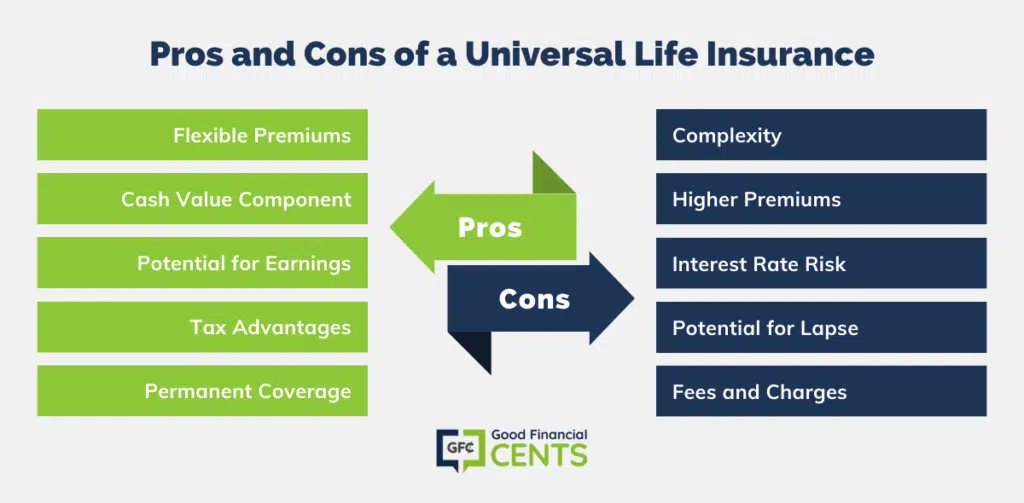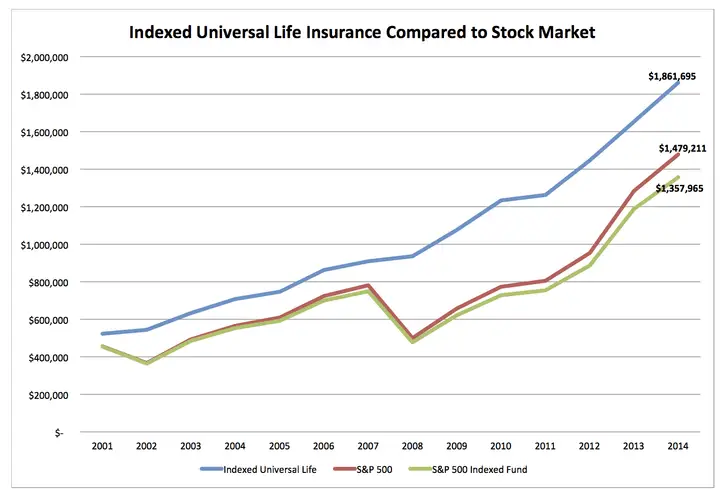All Categories
Featured
Table of Contents
Do they contrast the IUL to something like the Vanguard Overall Supply Market Fund Admiral Shares with no tons, a cost ratio (ER) of 5 basis factors, a turnover proportion of 4.3%, and an extraordinary tax-efficient record of distributions? No, they compare it to some horrible actively taken care of fund with an 8% lots, a 2% EMERGENCY ROOM, an 80% turnover proportion, and a dreadful document of temporary capital gain distributions.
Shared funds usually make annual taxed circulations to fund proprietors, even when the value of their fund has decreased in value. Common funds not just need earnings coverage (and the resulting yearly tax) when the mutual fund is increasing in value, however can additionally impose earnings taxes in a year when the fund has actually decreased in value.
That's not exactly how mutual funds work. You can tax-manage the fund, collecting losses and gains in order to reduce taxed distributions to the investors, however that isn't in some way going to alter the reported return of the fund. Just Bernie Madoff types can do that. IULs avoid myriad tax catches. The possession of common funds may require the common fund owner to pay projected taxes.

IULs are easy to position so that, at the owner's death, the beneficiary is not subject to either income or estate tax obligations. The very same tax obligation reduction strategies do not function virtually as well with shared funds. There are numerous, often pricey, tax catches linked with the timed trading of common fund shares, catches that do not put on indexed life insurance policy.
Opportunities aren't extremely high that you're mosting likely to undergo the AMT as a result of your mutual fund circulations if you aren't without them. The remainder of this one is half-truths at ideal. While it is true that there is no income tax due to your successors when they acquire the profits of your IUL policy, it is additionally real that there is no earnings tax obligation due to your successors when they inherit a common fund in a taxable account from you.
Flexibility Of Universal Life
There are much better ways to avoid estate tax issues than purchasing financial investments with reduced returns. Shared funds might cause revenue taxation of Social Safety benefits.

The growth within the IUL is tax-deferred and might be taken as free of tax income via car loans. The plan proprietor (vs. the shared fund supervisor) is in control of his/her reportable income, therefore allowing them to lower or perhaps eliminate the taxes of their Social Safety and security advantages. This set is excellent.
Here's an additional very little concern. It holds true if you purchase a mutual fund for say $10 per share right before the distribution day, and it disperses a $0.50 circulation, you are then mosting likely to owe taxes (most likely 7-10 cents per share) although that you haven't yet had any kind of gains.
In the end, it's actually regarding the after-tax return, not just how much you pay in tax obligations. You are mosting likely to pay more in taxes by making use of a taxable account than if you purchase life insurance policy. However you're likewise most likely going to have even more money after paying those taxes. The record-keeping needs for owning common funds are significantly extra complex.
With an IUL, one's records are maintained by the insurance policy business, duplicates of yearly statements are sent by mail to the proprietor, and circulations (if any type of) are completed and reported at year end. This is likewise sort of silly. Certainly you should maintain your tax documents in instance of an audit.
Whole Life Vs Universal Life Chart
All you have to do is shove the paper right into your tax obligation folder when it reveals up in the mail. Hardly a factor to buy life insurance policy. It's like this individual has actually never ever spent in a taxed account or something. Common funds are commonly component of a decedent's probated estate.
On top of that, they undergo the delays and expenditures of probate. The profits of the IUL plan, on the other hand, is constantly a non-probate distribution that passes beyond probate straight to one's named beneficiaries, and is therefore not subject to one's posthumous financial institutions, unwanted public disclosure, or comparable delays and prices.
Medicaid incompetency and lifetime revenue. An IUL can provide their owners with a stream of revenue for their entire lifetime, no matter of just how lengthy they live.

This is beneficial when organizing one's affairs, and transforming possessions to revenue before a retirement home arrest. Common funds can not be transformed in a comparable fashion, and are practically always considered countable Medicaid assets. This is one more stupid one advocating that bad people (you recognize, the ones who require Medicaid, a government program for the poor, to pay for their assisted living home) must make use of IUL instead of common funds.
Maximum Funded Tax Advantaged Insurance Contracts
And life insurance policy looks horrible when compared rather against a pension. Second, individuals that have money to acquire IUL above and past their pension are mosting likely to need to be dreadful at taking care of cash in order to ever before get Medicaid to pay for their assisted living facility expenses.
Chronic and terminal health problem motorcyclist. All policies will certainly allow a proprietor's very easy accessibility to money from their policy, typically forgoing any surrender fines when such people experience a serious illness, require at-home care, or become confined to an assisted living home. Shared funds do not provide a similar waiver when contingent deferred sales costs still use to a shared fund account whose owner requires to sell some shares to fund the expenses of such a remain.
Universal Life Company
You get to pay more for that benefit (motorcyclist) with an insurance coverage policy. What a large amount! Indexed global life insurance policy gives survivor benefit to the beneficiaries of the IUL owners, and neither the proprietor neither the beneficiary can ever shed money as a result of a down market. Shared funds provide no such assurances or survivor benefit of any kind of kind.
Currently, ask on your own, do you in fact need or want a survivor benefit? I definitely do not require one after I reach financial independence. Do I desire one? I mean if it were inexpensive enough. Certainly, it isn't affordable. Typically, a purchaser of life insurance policy spends for truth price of the life insurance coverage advantage, plus the expenses of the plan, plus the revenues of the insurance policy firm.
What Is The Difference Between Universal And Term Life Insurance
I'm not entirely certain why Mr. Morais threw in the entire "you can't lose cash" again here as it was covered rather well in # 1. He simply wished to duplicate the best marketing factor for these points I mean. Once more, you don't lose nominal bucks, however you can lose actual bucks, as well as face serious opportunity price because of low returns.

An indexed global life insurance plan proprietor may trade their plan for a totally different plan without activating revenue taxes. A common fund owner can stagnate funds from one shared fund firm to one more without marketing his shares at the former (hence causing a taxable event), and repurchasing brand-new shares at the latter, frequently based on sales charges at both.
While it holds true that you can exchange one insurance plan for one more, the reason that individuals do this is that the initial one is such a terrible policy that even after acquiring a brand-new one and going with the early, negative return years, you'll still appear in advance. If they were sold the right plan the first time, they should not have any type of desire to ever before trade it and undergo the very early, unfavorable return years once again.
Latest Posts
Best Indexed Universal Life Insurance Policies
Group Universal Life Insurance
Variable Universal Life Insurance Quotes